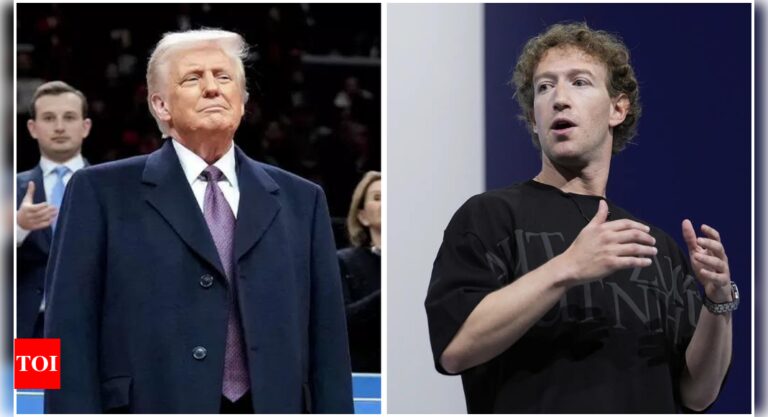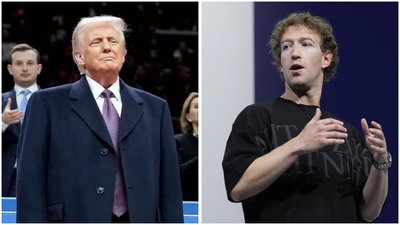Mark Zuckerberg, CEO of Facebook, Instagram and Whatsapp’s parent company Meta, recently visited the White House to discuss how the company could support the Trump administration’s efforts to strengthen its technical leadership in the United States.
According to a statement from Andy Stone, X’s meta spokesman, Zuckerberg went to the White House Thursday (February 6th).
“Mark Zuckerberg was in the White House today and discussed how Meta could help the administration protect and advance American technical leaders overseas,” Stone said.
Mark Zuckerberg supports President Donald Trump’s policy
Over the past few weeks, Zuckerberg has expressed optimism about President Donald Trump’s policies, helping technology companies maintain global control while protecting them from regulatory challenges. It suggests.
During Meta’s January revenue call, Zuckerberg said 2024 would be “a big year to redefine relations with the government.”
“We are now proud of our big companies, and have a US administration that prioritizes the victory of American technology and protects value and interests overseas, he told investors.
Meanwhile, he has spoken out about the need for government support in AI races. Speaking about Joe Rogan’s podcast last month, he urged US policymakers to play a more active role in ensuring American leadership in artificial intelligence.
“It’s really competitive. I think the government is a very close competition and when we think we need help, it’s a given that the US leads all of this. Zuckerberg needs to be a force that helps them do these things.
Zuckerberg met Trump twice before taking office
Zuckerberg’s partnership with the administration also includes two reporting visits to Trump at Mar-a-Lago in Florida.
Zuckerberg also made several moves showing increased consistency between the Meta and the Trump administration. He promoted longtime Republican strategist Joel Kaplan to Chief Global Affairs Officer, and appointed UFC CEO and Trump ally Dana White to Meta’s board of directors.
Additionally, the company has concluded US-based fact-checking on its platform. Meta also reduced its diversity, equity, and inclusion (DEI) initiatives and reassigned civil rights team members to other departments.



